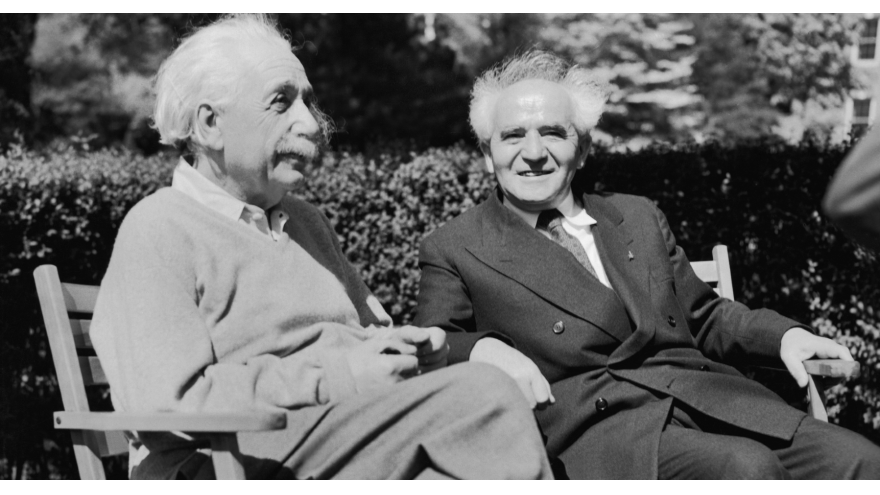The one generally known story about Albert Einstein and Israel is true. The 20th century’s greatest scientific genius refused David Ben-Gurion’s offer to become its second president.
But this fact yields a false sense of Einstein’s relationship with Zionism. Einstein was a Zionist from 1919 onwards, when he was converted to the cause by Chaim Weizmann’s lieutenant, Kurt Blumenfeld.
Thus, in 1921, Einstein accompanied Weizmann on a fundraising tour of the United States for the planned Hebrew University. Attracting front-page headlines and enthusiastic crowds, it raised $700,000—a remarkable sum in those days.
Two years later, in February 1923, Einstein visited British Mandate Palestine. During this trip, he gave the first scientific lecture at Hebrew University and joined Weizmann on its board of governors. Einstein continued to raise money for the university into the 1950s.
On that visit, he also planted a tree in front of the Technion, an institution he would later support, including serving as chairman of the Technion Society.
In the 1930s, Einstein took on an honorary post as chairman of the United Jewish Appeal. This involved more than lending his name. Einstein gave radio addresses about the dangers Jews faced in Europe, and he denounced the limitations against Jewish emigration into Palestine.
Einstein’s decision to turn down Israel’s presidency was certainly not motivated by disregard or indifference, but rather by respect.
As he put it, “I am deeply moved by the offer from our State of Israel, and at once saddened and ashamed that I cannot accept it. … I lack both the natural aptitude and the experience to deal properly with people and to exercise official functions. … I am the more distressed over these circumstances because my relationship to the Jewish people has become my strongest human bond, ever since I became fully aware of our precarious situation among the nations of the world.”
In the last days of his life, Einstein was working doggedly on a speech in support of Israel. Although he died before he was scheduled to deliver it, the address survives. In it, he said Israel’s creation was “an event which actively engages the conscience of this generation. It is, therefore, a bitter paradox to find that a state which was destined to be a shelter for a martyred people is itself threatened by grave dangers to its own security. The universal conscience cannot be indifferent to such peril.”
Einstein bequeathed his personal archives and all literary rights to his works to the Hebrew University of Jerusalem.


























